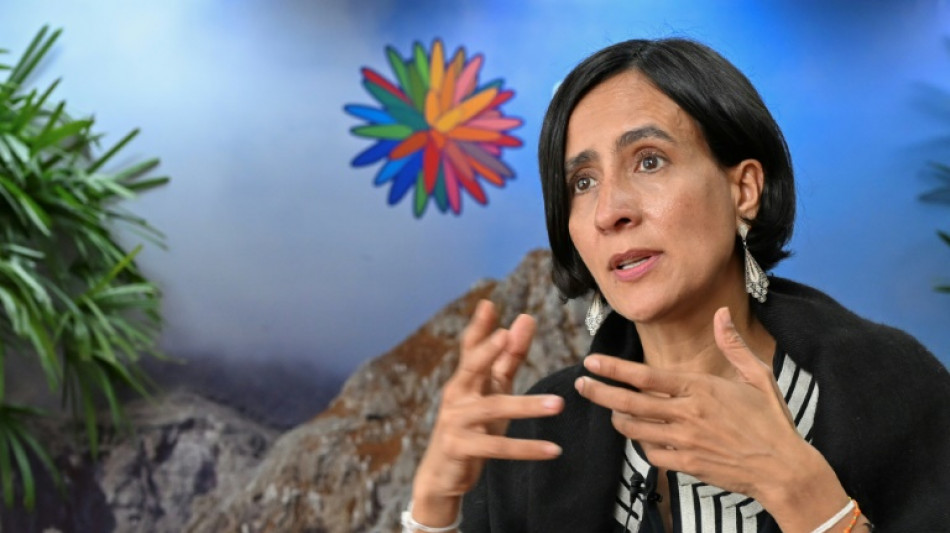COP16 chair hails biodiversity attaining 'equal footing' with climate crisis / Photo: Luis ACOSTA - AFP
The world's biggest nature protection conference, under way in Cali, has placed biodiversity loss "on an equal footing" with the climate emergency, the meeting's Colombian president told AFP in an interview Monday.
"I think we have already achieved a first objective which was to raise the political profile of the... issue of biodiversity, put it on an equal footing with the... climate issue," Susana Muhamad, who is also Colombia's environment minister, said of progress made.
The 16th so-called Conference of Parties (COP16) to the UN Convention on Biological Diversity, has attracted a record 23,000 registered delegates and some 1,200 journalists to Cali, according to organizers.
Thousands of activists and residents have also flocked to the so-called "green zone" for cultural activities and demonstrations.
On Tuesday, UN chief Antonio Guterres, six heads of state and 115 ministers will join the conference in southwest Colombia.
Themed "Peace with Nature," COP16 has the urgent task of coming up with monitoring and funding mechanisms to achieve 23 nature protection goals agreed in Canada two years ago.
Muhamad told AFP that the Global Biodiversity Framework Fund (GBFF), created to give effect to those goals, "needs more money."
To unlock more funds, she said, "it would be very helpful if developed countries could increase the messages that they are going to meet the development financing target" before leaving Cali.
- 'Words into action' -
Several developing countries have called for the creation of a different fund that, unlike the GBFF, does not fall under the Global Environment Facility -- which they say is difficult to access.
On Sunday, Guterres urged the 196 signatories to the biodiversity convention to "convert words into action" and fatten the GBFF.
So far, countries have made about $250 million in commitments to the fund, according to monitoring agencies.
Under the Kunming-Montreal Global Biodiversity Framework finalized in 2022, countries must mobilize at least $200 billion per year by 2030 for biodiversity, including $20 billion per year by 2025 from rich nations to help developing ones.
A key goal of the summit is to agree on a mechanism for sharing the profits of genetic information taken from plants and animals -- for medicinal use for instance -- with the communities they come from.
With about a million known species worldwide estimated to be at risk of extinction, delegates have their work cut out for them in Cali.
There are only five years left to achieve the 23 UN targets, which include placing 30 percent of land and sea areas under protection by 2030.
P.Mueller--BD
